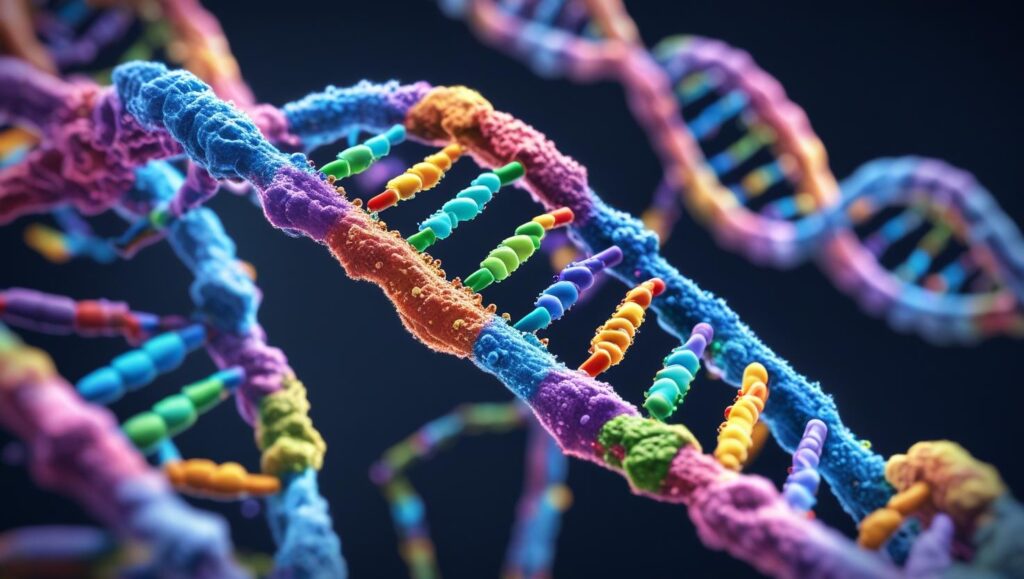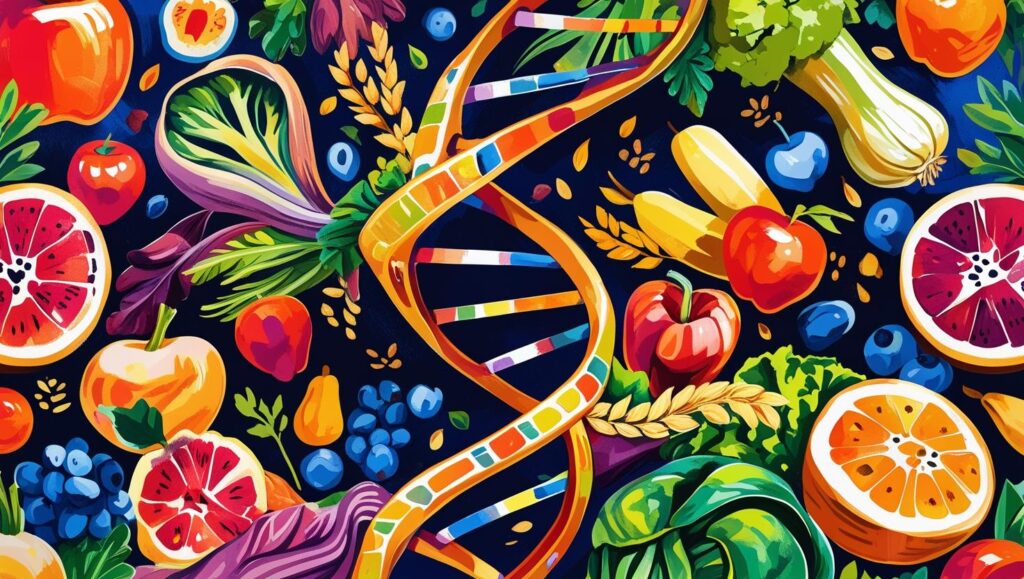
Genomic Nutrition
Abstract
Genomic nutrition, also known as nutrigenomics, explores the interaction between dietary components and an individual’s genetic makeup. This field aims to personalize dietary recommendations based on genomic variations to optimize health, prevent disease, and enhance well-being. This paper examines how different genomic types influence nutrient metabolism, the impact of various foods on gene expression, and the potential health outcomes of personalized nutrition. The discussion includes macronutrient and micronutrient requirements, gene-diet interactions, and future directions in precision nutrition.
1. Introduction
The concept of “one-size-fits-all” in nutrition is becoming obsolete as research reveals significant genetic variability in how individuals metabolize nutrients. Genomic nutrition leverages genetic testing to identify polymorphisms that affect nutrient absorption, metabolism, and disease risk. By understanding these genetic differences, personalized dietary plans can be designed to improve health outcomes, reduce disease risk, and enhance performance.
2. Genomic Variations and Nutrient Metabolism
Genetic polymorphisms influence how the body processes macronutrients (carbohydrates, fats, proteins) and micronutrients (vitamins, minerals). Key genes involved include:
2.1. Carbohydrate Metabolism
- AMY1 Gene: Encodes salivary amylase; copy number variations affect starch digestion. Low AMY1 copies may lead to higher blood sugar spikes from high-carb diets.
- TCF7L2 Gene: Associated with type 2 diabetes risk; carriers may benefit from low-glycemic-index diets.
2.2. Fat Metabolism
- FTO Gene: Variants linked to obesity; individuals with risk alleles may respond better to high-protein, low-fat diets.
- APOA2 Gene: Influences saturated fat metabolism; certain genotypes have higher obesity risk with high saturated fat intake.
2.3. Protein Metabolism
- MTHFR Gene: Affects folate metabolism; individuals with mutations may require higher folate intake to prevent deficiencies.
- BCMO1 Gene: Influences beta-carotene conversion to vitamin A; variants may need direct vitamin A sources.
3. Personalized Diets Based on Genomic Types
Different genomic profiles may benefit from specific dietary patterns:
3.1. Low-Carbohydrate Genotype
- Genes: AMY1 (low copies), TCF7L2 (risk allele)
- Optimal Diet: High in healthy fats (avocados, nuts), moderate protein, low-glycemic carbs (non-starchy vegetables).
- Health Outcomes: Improved insulin sensitivity, reduced diabetes risk.
3.2. Low-Fat Genotype
- Genes: FTO (risk allele), APOA2 (risk genotype)
- Optimal Diet: High in lean proteins, complex carbs, and unsaturated fats (olive oil, fish).
- Health Outcomes: Better weight management, lower cardiovascular risk.
3.3. Mediterranean Genotype
- Genes: PPARG (favors unsaturated fats), CETP (improves lipid metabolism)
- Optimal Diet: Rich in omega-3s, whole grains, olive oil, and antioxidants.
- Health Outcomes: Reduced inflammation, longevity benefits.
3.4. High-Protein Genotype
- Genes: MTHFR (requires folate), PEMT (choline metabolism)
- Optimal Diet: Animal proteins, leafy greens, eggs, and choline-rich foods.
- Health Outcomes: Improved muscle synthesis, cognitive function.
4. Impact of Different Foods on Gene Expression
Certain foods modulate gene expression, influencing health outcomes:
4.1. Cruciferous Vegetables (Broccoli, Kale)
- Gene Interaction: Induces detoxification genes (GST family).
- Health Impact: Lowers cancer risk.
4.2. Omega-3 Fatty Acids (Fatty Fish, Flaxseeds)
- Gene Interaction: Modulates inflammatory genes (NF-κB pathway).
- Health Impact: Reduces chronic inflammation.
4.3. Polyphenols (Berries, Dark Chocolate)
- Gene Interaction: Activates antioxidant genes (Nrf2 pathway).
- Health Impact: Enhances cellular protection.
4.4. Fermented Foods (Yogurt, Kimchi)
- Gene Interaction: Influences gut microbiome-related genes.
- Health Impact: Improves digestion and immunity.
5. Health Outcomes of Genomic-Based Nutrition
Personalized nutrition can lead to:
- Weight Management: Better adherence to genetically suitable diets.
- Disease Prevention: Lower risk of diabetes, CVD, and cancer.
- Longevity: Activation of anti-aging genes (e.g., SIRT1 via resveratrol).
- Mental Health: Improved neurotransmitter synthesis via gene-diet interactions.
6. Challenges and Future Directions
- Ethical Concerns: Genetic data privacy.
- Accessibility: Cost of genetic testing.
- Research Gaps: More studies needed on diverse populations.

7. Conclusion
Genomic nutrition represents a paradigm shift from generalized dietary guidelines to precision-based recommendations. By aligning food intake with genetic predispositions, individuals can optimize metabolic health, prevent disease, and enhance longevity. Advances in genetic testing and AI-driven dietary planning will further refine personalized nutrition strategies.